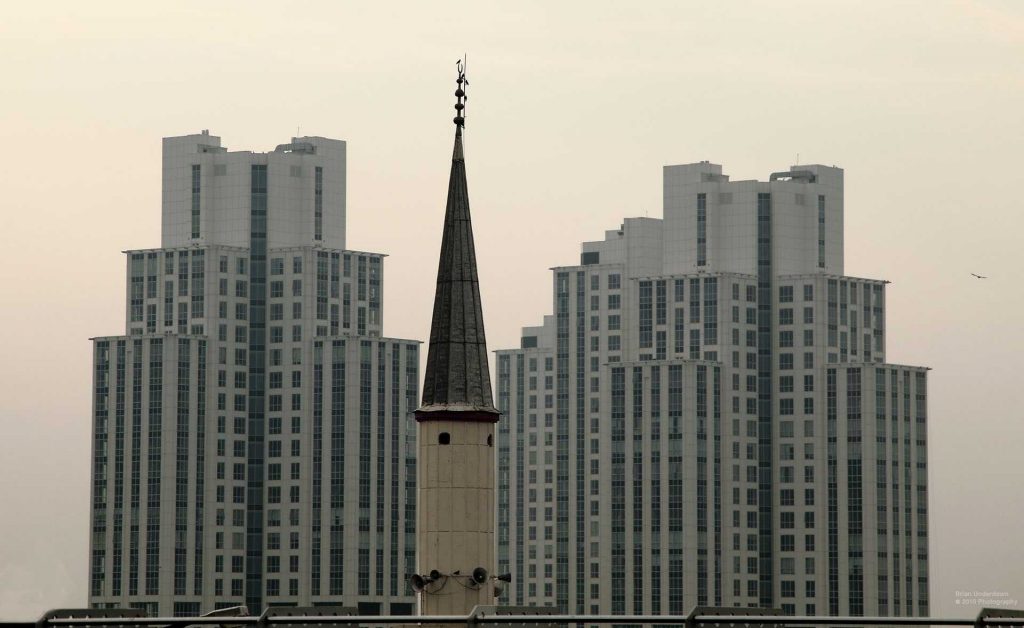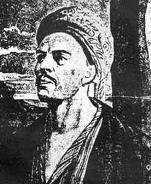Scheherazade S. Rehman is a professor of international finance/business and international affairs at The George Washington University. You can visit her homepage here and follow her on Twitter @Prof_Rehman.
In the past, Turkey was unusual because it was one of the very few Muslim democratic states. After the Arab Spring in 2011 that is no longer true—however, it is unique in being a secular democracy. Turkey is also unusual as a key Muslim ally of the United States because it hosts the Incirlik Air Base, which is vital to the logistical air support for Iraq and Afghanistan—much like Bahrain hosts the 5th Fleet (Navy) in Jaffair. However it is entirely unique in being the only Muslim member of NATO.
The West has always viewed Turkey as fundamental to American and European strategic security interests—this may have been short sighted. Beginning the mid-1900s with the rise of a modern and westernized Turkey, the West fell into a dull complacency about Turkey being a safe buffer against the East. American foreign policy experts in Washington, D.C. are extremely good but have a tendency to have a fatal flaw of viewing historic data in decades as opposed to centuries. They forget Turkey was Muslim (regardless of the persona the government presented for much of the 1900s). Did we not make the same miscalculation under the Shah’s Iran?
Islam entered Turkey in the latter half of the 11th century and thrived until Gen. Kemal Ataturk (an unapologetic Europhile) in the early 1900s decided to change Turkey to all things non-Muslim. Ataturk (1881-1938), the founding father of modern Turkey, began secularism (separating religion and the state) and westernizing the country in the late 1920s to early 1930s by amending the Constitution, which eliminated the provision that the state religion was Islam. He also made subsequent reforms which transformed Turkey to be a modern, democratic, and secular state with a very Western appearance and feel to it. This was all done under the Kemalist ideology. The defining moment of modern westernized Turkey was that it abolished the caliphate, which served as the seat of political Islam for over 600-plus years. The caliphate was a symbolic claim to the global leadership over all Muslims.
Turkey, with a population of 73.6 million people, is close to 99 percent Muslim. Did no one in the West expect that at some point (with just a matchstick) the minority Kemalist elites would have a day of reckoning with the other 99 percent? It took a 26-year-old Tunisian fruit seller to be that match, as he not only set himself on fire but also the rest of the Arab world in spring 2011—and it is still burning. His name is Tarek al-Tayeb Mohamed Bouazizi and he deserves to be remembered. Muslims have now come out of the closet and reclaimed Turkey amidst enormous dissention over the degree of Islam’s involvement in the daily lives of people and political life.
No one asked the question that while we know a Muslim country with secular democracy can thrive within globalization and modernity, is the same true for a nonsecular Islamic democracy? Democracy has arrived in the Muslim Arab world and that is a great achievement, but no one knows where it will land. The fight for secular democracy is still being waged. Turkey can lead by example.
There is talk of the rise of political Islam in the Arab world. The buzz is to “watch Egypt,” as it will be the true test for Muslim democracy. Egypt has always served as the barometer for the Arab world. When Egypt shifts, the Arab sands change—a lesson that some Persian Gulf Emirs are still not heeding. I agree, Egypt is the country to watch, but if Turkey continues to leads as a secular democracy balancing Islam and simultaneously being effective in geopolitics—it could be a game changer. For example, Turkey demanded the attendance of the Organization of Islamic Cooperation if the European Union (which has non-NATO members) was being allowed to sit in at the spring NATO summit; it has asserted itself into the Syria conflict; pushed back against Iran; and advocated for a Palestinian statehood. Having said all this, there has always been talk about the rise of Turkey. For example, it could make for the perfect emerging market as it bridges Eastern and Western markets. The rise of modern Turkey has always fallen short in the end. Is this about to change?
Is Turkey’s AKP Justice and Development Party elegant enough to realize that it could elevate Turkey to be the standard bearer once more for the Muslim world as chaotic Egypt cannot control itself? AKP advocates a conservative social agenda and a liberal market economy. If the AKP can balance Islam and a secular democracy it then gives hope that Turkey can be the Muslim “phoenix rising.” Does Turkey have the potential to regain its status as a geopolitical superpower? Yes, but it will wield religious and political influence (not economic) as it guides other newly democratized Muslim countries to navigate the balance between Islam, democracy, and secularism.
Most prominent of all the upcoming battles between a secular state and Islam in Turkey will be one that is fought over women. I am not talking about the right to wear or not wear headscarves but rather giving women real legal equality (as men) in all walks of their lives. This is battle the Arab world needs to watch—modernization which tends to bring with it economic freedom for women fundamentally threatens the patriarchal system. That is what scares most Islamic fundamentalists.
Real political Islam cannot be threatened by a 14-year-old school girl and then proceed to shoot her in the head—it only demonstrates ridiculous insecurity of oneself. Real political Islam will embrace economic growth, strive for sustainable productivity increases, manage natural resources wisely, codify equality, educate everyone regardless of class or gender, and irradiate extreme income disparity. No real sustainable leadership disenfranchises 50 percent of its population. Most of all, if political Islam is to rise it must have leadership that is effective in the real world and with the West, and not just in the microcosm of the domestic political arena or audience. If it insulates itself and its people, it will simply remain in place and not thrive economically or in any other sustainable way. Thus, in truth, the only Muslim country that has any potential as a geopolitical power is Turkey.
As with all potential superpowers, much has to go right over very long periods of time before the mantel can be won. Turkey will not be an economic or a military superpower, but like the European Union, it has the potential of being a special kind of superpower: one that serves as a balancer for Western civilization because of the potential influence it could wield on the direction of the Muslim world’s engagement with the world.



